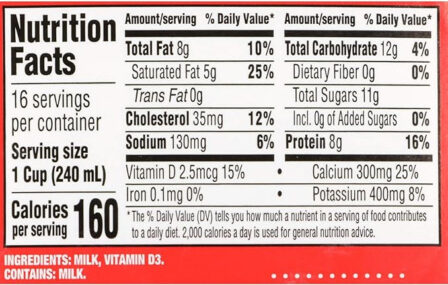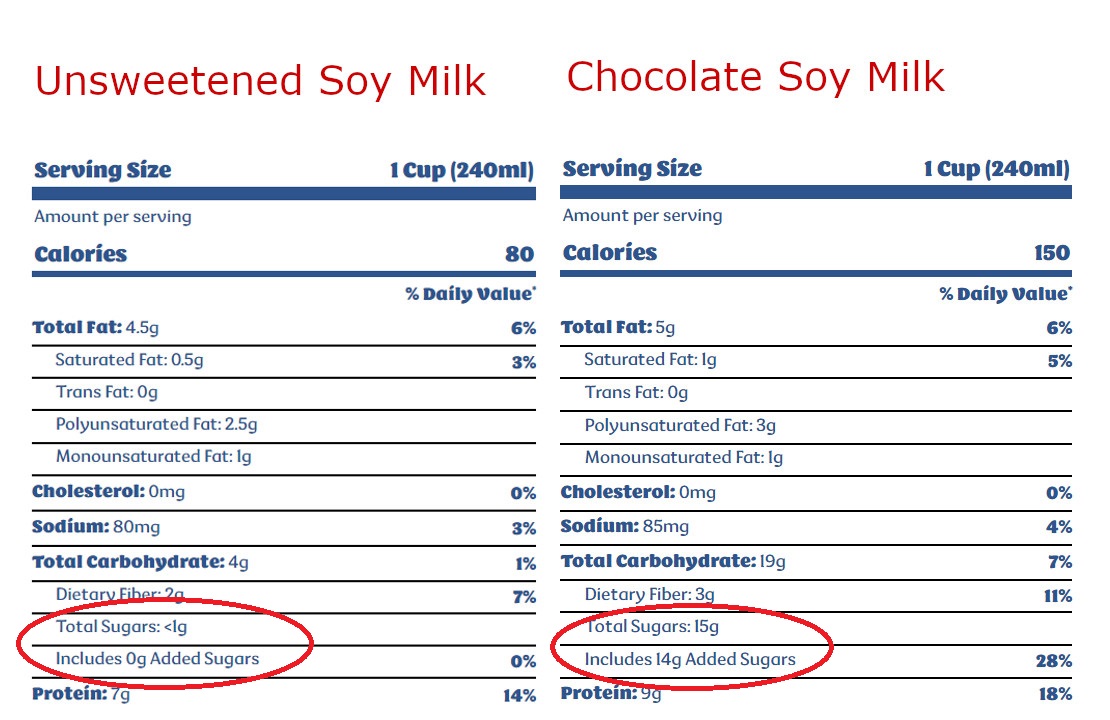
[ad_1]
Calcium, iodine, and protein, oh my! Cow’s milk can present a wide range of vitamins that kids have to develop. However what ought to mother and father take into consideration if milk just isn’t an choice, both for medical causes, equivalent to meals allergy, lactose intolerance, eosinophilic esophagitis, and so forth., or cultural or private preferences?
Milk’s Position to Help Progress
For some kids, milk could be a key contributor to a well-balanced weight loss plan. The US Division of Agriculture (USDA) recommends 2-3 servings of milk a day for toddlers, because it’s an environment friendly option to get energy, protein, nutritional vitamins and minerals.
Entire milk is an effective supply of fats and protein for 12-23 month-olds. It offers calcium, iodine, potassium, and vitamin A and D. At age two, the USDA recommends switching to low-fat milk to restrict energy from saturated fats to lower than 10% of energy per day.
The excellent news is that there are a whole lot of good various milks out there within the grocery store. However with so many selections, it’s essential to know what to concentrate to from a diet standpoint. As a dietitian who works with youngsters with meals allergic reactions, discussing what to search for in milk options is one thing I routinely spend time discussing with households.
There are a couple of concerns when enthusiastic about various milks:
HOW TO CHOOSE AN ALTERNATIVE MILK FOR KIDS
1. Contemplate the Function of Different Milk

When enthusiastic about another milk, think about what position it’s enjoying in your baby’s general diet. In case your baby is a toddler with a milk allergy, chances are you’ll have to prioritize discovering another increased in energy and protein just like the nutrient make-up of cow’s milk (see diet label). In the event that they’re lactose illiberal, there are lactose-free milks and dairy merchandise, like cheese and yogurt, which have the same nutrient make-up and can be appropriate substitutes. In the event that they’re youngsters who’re rising properly and seemingly getting ample diet from different meals sources, the nutrient make-up of the choice milk will probably be much less essential.
The amount is one thing to bear in mind as properly. For instance, in the event you’re utilizing various milk for baking or cooking, the dietary content material isn’t as essential.
That stated, it’s additionally key to concentrate to how a lot sugar is in some various milks — it will probably add up shortly! Whereas cow’s milk has naturally occurring sugars, quite a lot of various milks have a whole lot of added sugar, which we advocate limiting. As an example, the identical model of soy milk can have lower than one gram of sugar for unsweetened, six grams for unique, and 15 grams for chocolate flavored (see under). The U.S. Dietary Tips and the American Coronary heart Affiliation advocate that children should not have any greater than 24 grams of sugar per day.

2. Search for Nutrient-Dense Milk Options
When selecting another milk – particularly in the event you’re trying to exchange the day by day serving necessities for youthful youngsters and toddlers – search for ones which might be increased in protein (6-8 grams per serving), fats and vitamin and minerals. From this standpoint, fortified soy and pea milk are normally good substitutes, as they each have related quantities of protein and calcium to cow’s milk. Examples of different milks that aren’t as nutrient dense are: almond, oat, coconut, cashew and rice.
3. Assume About Calcium Ranges
Children want various ranges of calcium every day: kids ages 1-3 want 700 mg; 4-8 want 1,000 mg; and 9-18 want 1,3000. Additionally, kids 12 months and older want 600 Worldwide Items (IU) of vitamin D day by day. For perspective, 1 cup of cow’s milk offers 300 mg of calcium and 120 IU of vitamin D.
Consuming a milk various or taking calcium and vitamin D dietary supplements are each simple methods to make sure your youngsters will not be lacking out on these essential vitamins that help bone well being. However we additionally don’t need to give them an excessive amount of.
Intuitively, we would suppose that children who don’t drink cow’s milk want a calcium complement; nevertheless, if their milk various offers ample calcium, then including a calcium complement may give them an excessive amount of. For all kids, we advocate limiting milk or various milk to 24 ounces per day.
4. Ask a Registered Dietitian
Should you’re uncertain of what milk various could also be greatest on your baby, registered dietitians are an awesome useful resource! They’ll take into consideration your baby’s present meals consumption and dietary wants and supply suggestions to assist obtain their diet targets.
To be taught extra about plant-based milk options and youngsters, pay attention to this earlier podcast episode. For extra details about Vitamin Remedy at Cincinnati Kids’s, or to schedule an appointment, please name 513-636-7475 choose 1.
Editor’s notice: Alison Cassin, RD, additionally contributed to this weblog publish.
[ad_2]